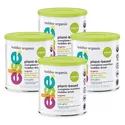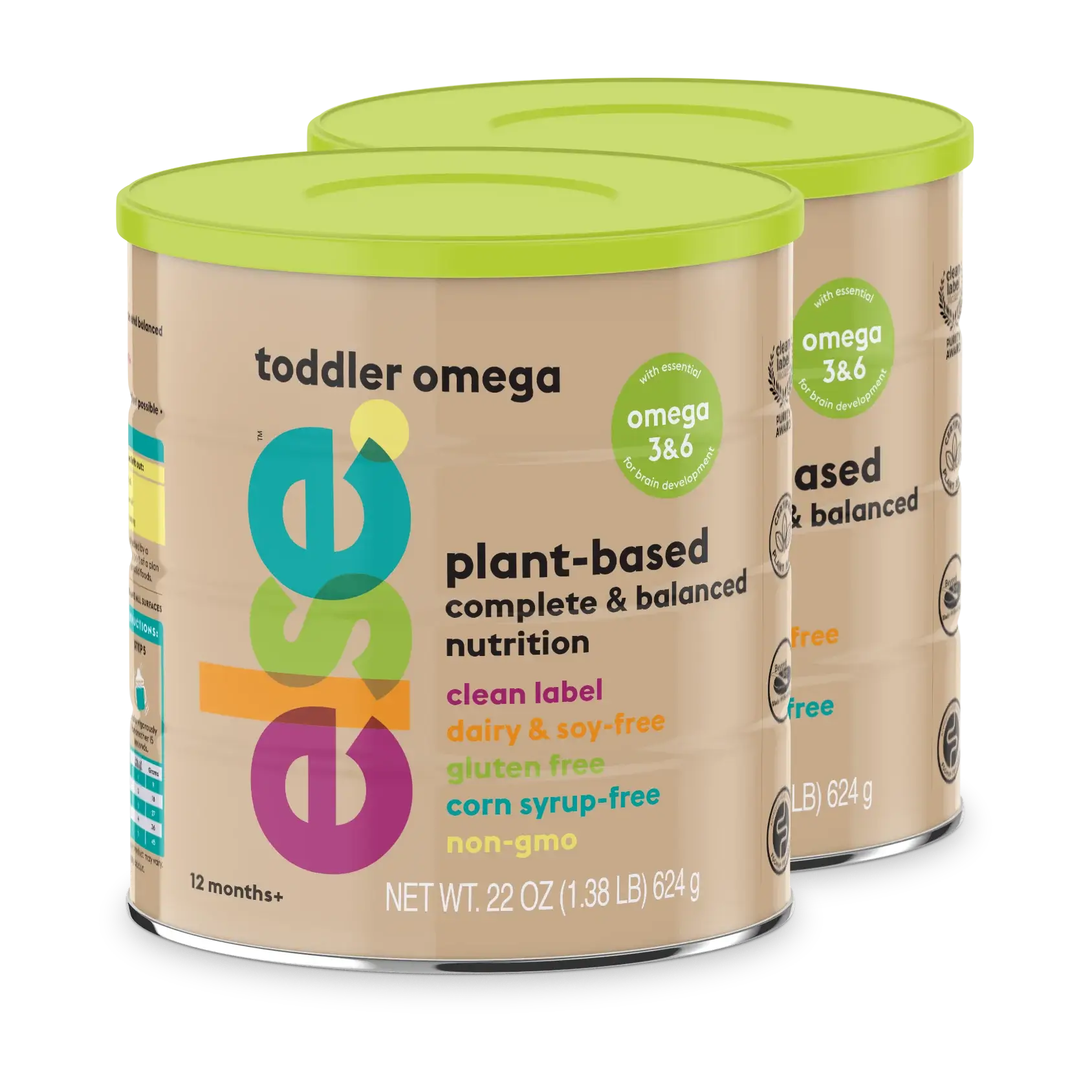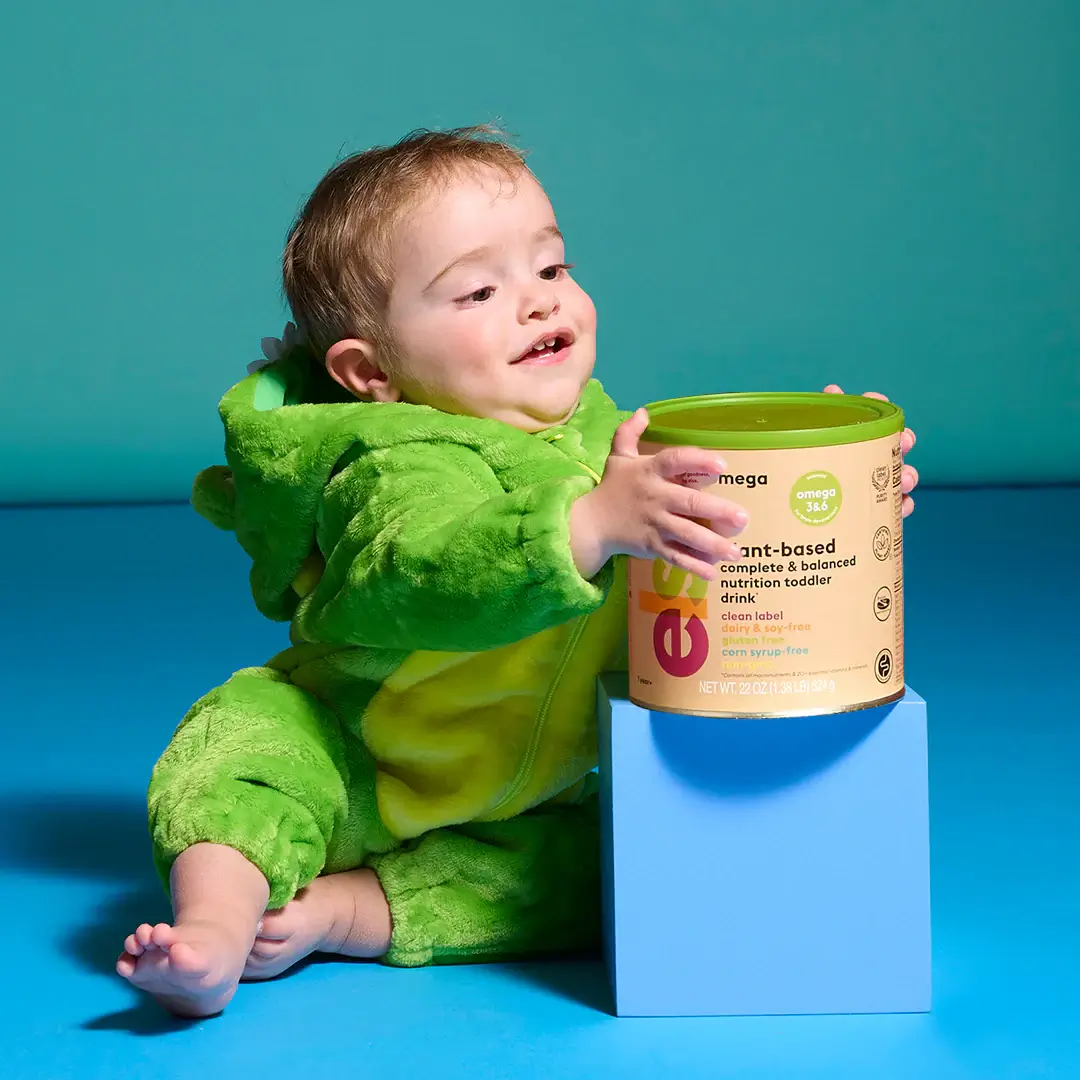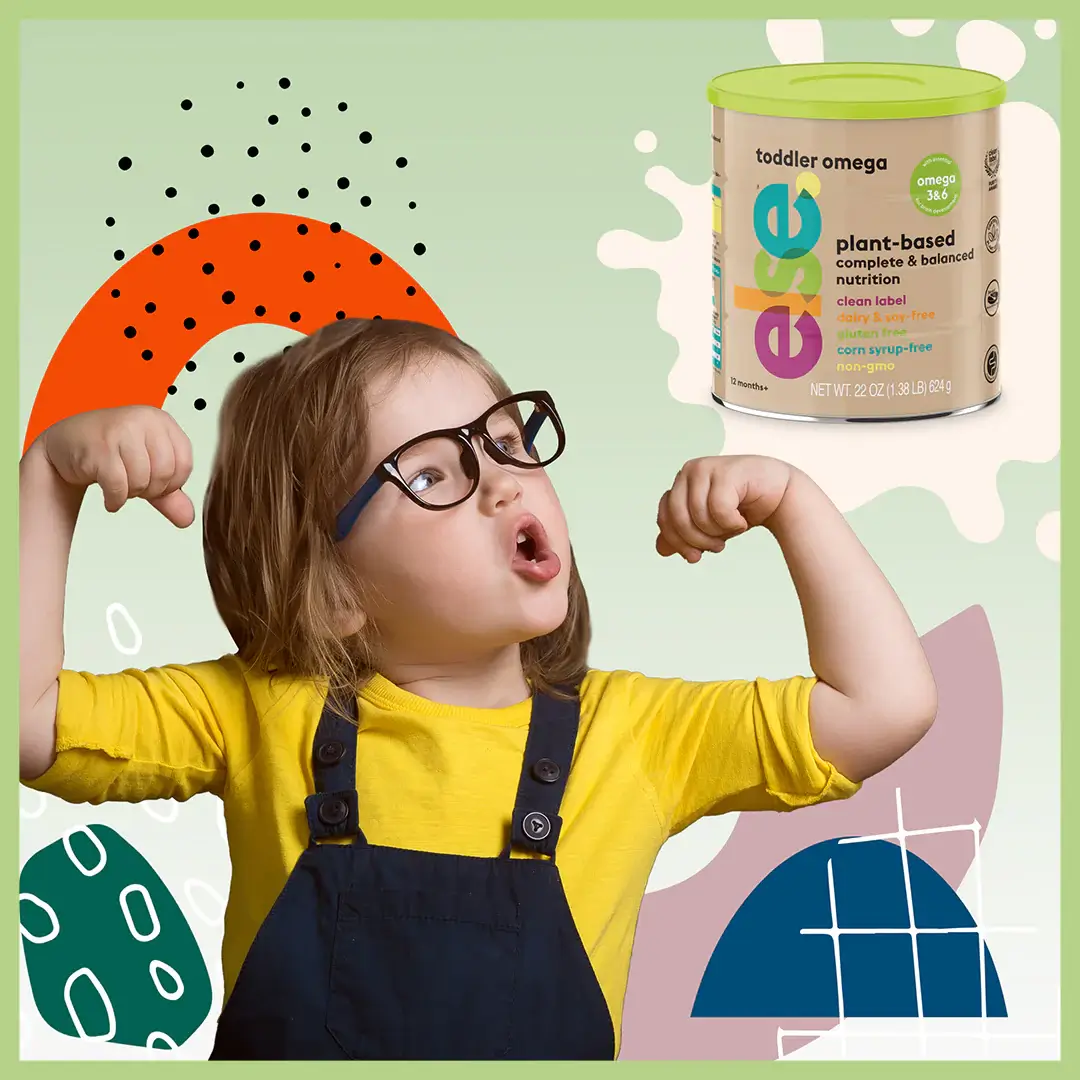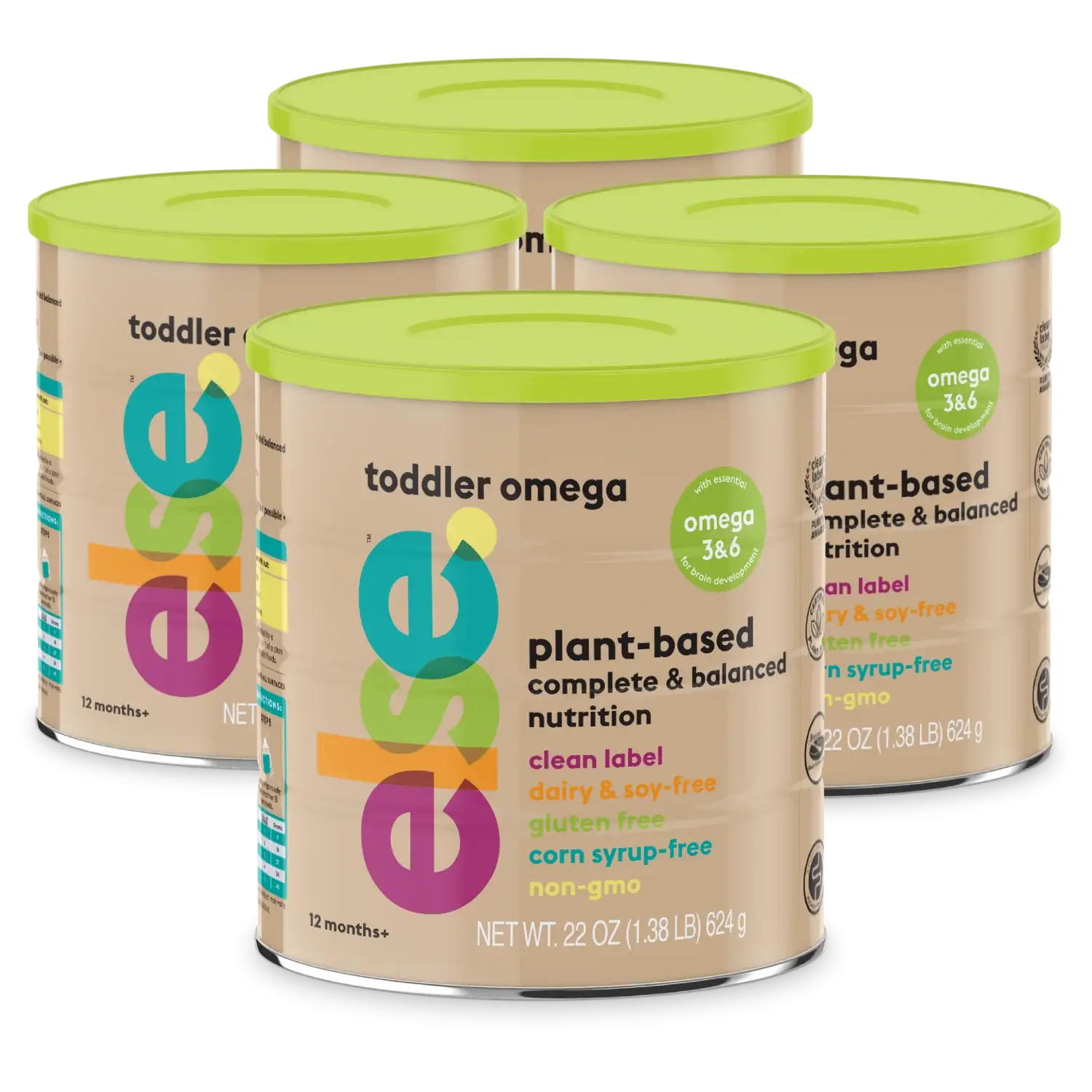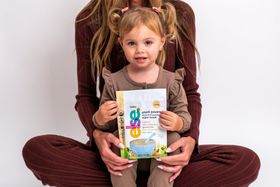A Comprehensive Look at Alternatives to Baby Formula
Interested in safe formula alternatives for your baby? Explore options like donor milk and plant-based toddler formulas to find the ideal choice for your little one's health.
Updated May 17, 2024

While breast milk is the ideal nutrient source for infants, it's not always feasible for every family. This often leaves parents grappling with finding the best alternatives to meet their baby's needs.
Alternatives to Infant and Toddler Formula: Considerations and Risks
The infant and toddler formula industry has evolved significantly since the early 20th century, offering several options. Parents may eventually need to consider healthy alternatives to formula, especially in times of a national or baby formula shortage.
In a formula shortage, parents might struggle to find a formula from recognized brands, even regular baby formula. In such cases, contact your pediatrician or a local milk bank accredited through the Human Milk Banking Association of North America for guidance.
They can help find resources, provide formula samples, or suggest safe substitutes, ensuring your baby gets the nutrients they need.
Various baby formula alternatives include goat milk, soy milk, and specialized formula. However, other options, such as homemade baby formula, may be unsafe. The American Academy of Pediatrics (AAP) advises against making your formula due to potential nutrient deficiencies and health risks.
Always remember that switching to a different formula or introducing a new one can take time; your baby may need time to tolerate the new one. Never dilute baby formula to make it last longer, as this can lead to nutrient deficiencies.
Whole cow’s milk or plant-based alternatives like almond milk are not recommended for babies under a year old but may be an option for older infants. Always consult with a healthcare provider before changing your baby's diet.
Safe Substitutes for Baby Formula
Mothers unable or unwilling to breastfeed may also wonder whether there are natural alternatives to baby formula. The short answer is that breast milk or formula products are the only safe and appropriate primary sources of nutrition for infants under one year of age.
While there are recipes for homemade baby formula that often circulate the internet, this is not a safe way to feed your baby. Commercial baby formulas have undergone extensive research, comprehensive regulatory review, and approval to ensure they are secure and adequate sources of nutrition for infants.
Homemade baby formula has numerous risks of malnutrition, contamination, and serious health consequences and should not be used. Research has found that many homemade baby formula recipes on blogs not run by healthcare professionals do not contain medical disclaimers and utilize high-risk ingredients such as raw milk.
Toddler Formulas
Once your child reaches at least 12 months of age, a toddler formula can be introduced as an additional source of nutrition. They should not be used before 12 months of age as they are not designed to be sole or primary food sources for infants.
Toddler formulas are a convenient option for kids who need a nutrition boost, may be going through a period of selective eating at mealtimes, or would benefit from easy and nutritious to-go foods. They work best as a complement to meals or between mealtimes. Else is usually safe for toddlers with difficulty tolerating a different formula.
If you're looking for a concentrated source of nutrients to supplement your child’s overall healthy diet — particularly when they reach the appropriate stage of development and are no longer solely relying on formula or breast milk.
Else Nutrition’s toddler formula is plant-based, dairy-free, soy-free, gluten-free, non-GMO, and free of corn syrup. It uses almonds, buckwheat, and tapioca as its main ingredients, an excellent option for kids who need a soy-free and dairy-free diet
.
In a baby formula industry primarily dominated by soy and dairy-based products, Else Nutrition offers a plant-based organic alternative to baby formula that has been long-awaited by many families. It contains:
- Almonds: Great source of plant protein, healthy fats, and essential micronutrients like vitamin E. Highly digestible, have anti-inflammatory properties, and contribute to prebiotics to feed a healthy gut microbiome.
- Tapioca: Derived from cassava, a root vegetable. It’s an easily digestible carbohydrate rich in vitamin C, iron, fiber, and calcium.
- Buckwheat: A naturally gluten-free plant with grain-like seeds. It’s a good source of plant protein, prebiotic fiber, antioxidants, and micronutrients like magnesium, manganese, phosphorus, copper, and iron.
Baby Formula Preparation Tips
When preparing formulas for your baby or toddler, there are a few things to remember:
- Cleanliness is key: First, wash your hands well with soap and water to minimize the risk of contaminating the formula with unwanted germs. The workspace, countertop, and the bottles and utensils you’re using to prepare the formula should also be properly sanitized.
- Avoid microwaving: After you mix the formula per the manufacturer’s instructions, you may want to warm it up a little, mainly if your baby has been used to drinking breast milk. This isn’t necessary, but if you choose to warm it, it should never be done using the microwave due to the risk of uneven heating and overheating in “hot spots” that can burn your child’s mouth or throat.
- Test the temperature: Instead, you can place the prepared and closed bottle of formula under a stream of warm running water. Test the temperature by pouring a few drops on your inner forearm's skin to ensure it’s not too hot.
- Follow instructions carefully: If you’re using a powdered formula, prepare water from a safe source. Follow the instructions precisely to ensure the correct amount of water and powder are measured and used. If too much water is used, this could dilute the formula and be inadequate for your baby’s nutritional needs. On the other hand, using too little water can tax immature organs and raise the risk of dehydration.
- Use within time limits: Once you’ve prepared your baby’s formula, it must be used within two hours or one hour from when your baby starts drinking it. Otherwise, prepared infant formula should be stored in the refrigerator and used within 24 hours. If your baby doesn’t drink it all in one sitting, leftover formula should be discarded as bacteria from their saliva can promote bacterial growth that could cause illness.
- Store it properly, and beware of the expiration date: Lastly, unopened containers of infant formulas should also be stored properly in cool, dry places at room temperature, like a pantry. Check the expiration date, and don’t use the formula after it passes its “Use By” date.
» Check out a step-by-step guide for supplementing your baby with formula at night
Understanding Non-Dairy Milk Alternatives for Babies and Toddlers
As you’re likely well aware, a growing variety of non-dairy commercial milk alternatives are available to consumers today. Many of these are shelved right next to their traditional dairy counterparts, although they’re expanding so much that many stores have designated sections for plant-based alternatives.
In many cases, you may consider one of these non-dairy alternatives when you see signs that the current formula doesn’t agree with a baby however, the most important thing to note about milk alternatives is that they are not a suitable replacement for breast milk or baby formula and should never be used as such. Neither should cow’s milk, for that matter, as this has been shown to lead to severe nutrient deficiencies.
Why Can’t You Substitute Commercial Milk for Formulas?
Plant milk doesn’t contain all of the nutrients, or the right nutritional composition needed to fuel the development of little bodies properly.
Babies require substantial calories, healthy fats, and adequate protein, vitamins, and minerals to grow normally. Breast milk is a highly nutrient-dense, complex food designed to meet those needs, and infant formulas have been carefully formulated to mimic it as best as possible.
Plant-based milk alternatives can be introduced to your child and incorporated into a healthy diet after 12 months. It’s essential to wait until one year so that milk doesn’t take up space for other crucial sources of calories and nutrition during infancy. Most kids aren’t ready to transition to more solid foods and other sources of nutrients until closer to this age.
6 Milk Alternatives for Baby Formula
Below are some of the most popular milk alternatives when parents are looking to transition from baby formula and some things to consider about each.
1. Goat Milk
Goat milk is often used instead of cow’s milk when toddlers are ready to transition from baby formula. It has slightly more protein, fat, and micronutrients than cow’s milk and contains less lactose than dairy. It should not be introduced before 12 months of age for the aforementioned reasons but also because babies lack the digestive maturity to break down large amounts of animal protein in the form of milk.
Studies have shown that replacing infant formula or breast milk with goat’s milk can lead to serious health and developmental problems. If you introduce your child to goat’s milk after age one, ensure it’s pasteurized, as raw goat milk can contain dangerous bacteria.
2. Coconut Milk
Coconut milk has two main forms: a carton or a can. Canned coconut milk is incredibly high in saturated fat and much too concentrated to give babies. Commercially made coconut milk in cartons is more diluted and typically has a fat content similar to cow’s milk but often contains thickeners and additives to maintain texture.
Furthermore, coconut milk can be a decent source of iron, vitamin A, and various B vitamins but offers negligible protein. However, coconut milk is also a unique source of a lauric acid compound with potential immune-boosting and infection-fighting benefits.
3. Rice Milk
Rice milk is one of the original plant-based milks and many parents have used it for their children. It’s made from rice and water and has a very mild flavor. Rice milk is low in calories and protein but is a good source of calcium and contains a variety of other micronutrients.
The primary concern with rice milk is that rice is a well-known source of inorganic arsenic, a heavy metal naturally occurring in the soil. Rice crops are among the most concentrated sources, meaning rice products can also contribute to this unwanted substance.
Studies have found that arsenic intake can lead to an increased risk for various cancers, as well as gastrointestinal, reproductive, immunological, and neurological problems in children. They should avoid it as much as possible.
4. Soy Milk
Be sure to choose fortified soy milk to ensure it contains all the essential vitamins and minerals for your toddler. As many parents are concerned about pesticides and genetically modified ingredients, choosing certified organic soy milk is a good way to minimize your child’s exposure to both through their diet.
Soy milk is made from soybeans, has the closest nutrient composition to cow’s milk, and is often recommended for kids seeking non-dairy milk options. Depending on the brand, it offers approximately 6-9 grams of protein per cup.
5. Almond Milk
Almond milk is made primarily from almonds and water and offers a mild flavor. While it’s an option for kids who need to avoid soy and dairy, almond milk would not suit kids with a tree nut allergy. Almond milk is diluted and therefore very low in calories, fat, and protein, but often provides around 50% of the daily needs for calcium and vitamin B12 if it’s been fortified. Else Nutrition offers a plant-based organic Toddler Omega Complete Nutrition alternative to baby formula, rich in omega fats and nutrients for daily nourishment.
6. Hemp Milk
Hemp milk is made by blending water with the hemp plant seeds, Cannabis sativa. It has a nutty, earthy flavor and provides similar fat to cow’s milk. However, hemp milk is low in calories and protein. Fortified hemp milk typically contains a variety of micronutrients and is easily digested.
Overall, look for unsweetened fortified milk as much as possible to optimize its nutritional contribution to your child’s diet without unnecessary added sugar. You may find that rotating a variety of high-quality plant-based milk into your toddler’s diet is helpful to meet supplemental nutrient needs.
Always read the nutrition label to determine the most nutrient-dense plant milk options.
When to Consult a Pediatrician
If you’re ever concerned that your baby or toddler isn’t getting the nutrition he or she needs, it’s best to speak to your healthcare provider. Your pediatrician and/or registered dietitian help you make the best decisions for your child’s health that will promote optimal growth and development. Contact the American Academy of Pediatrics if you need more help.
While breast milk is the ideal source of nutrition for growing babies, it’s not an option for every family. Baby formula is the next best option, and several commercial varieties will safely and adequately provide the nutrition your baby needs in his or her first year of life.
After Year One
Once your little one reaches one year, it’s time to consider changing formulas. You may switch from infant formula to toddler formula and/or plant-based toddler alternatives as a supplemental source of calories and nutrition for your child.
Remember that plant-based drinks like almond or oat kinds of milk are nutritionally insufficient to fill toddlers' nutritional needs. Hence, choosing alternatives explicitly designed for this age group is best.
The content and advice provided in this article are for informational purposes only and are not a substitute for medical diagnosis, treatment, or advice for specific medical conditions. Always consult a pediatrician to understand the individual needs of your child.




